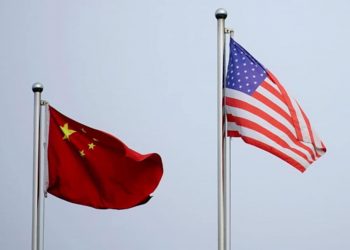Washington: Corruption and inflation could have an “adverse impact” on stability in China, Premier Wen Jiabao warned Sunday, also acknowledging that the people’s thirst for democracy was “irresistible.”
In a rare and wide-ranging interview with CNN, Wen touched on what until recently have been taboo subjects in Beijing and sought to brush aside international criticisms, insisting China’s communist leaders were adapting.
“I do have worry for the management of inflation expectations in China,” Wen told CNN’s “Fareed Zakaria GPS” program.
“And that is something that I have been trying very hard to manage appropriately and well, because I believe corruption and inflation will have an adverse impact on stability of power in our country.”
In mid-September, Beijing admitted that consumer inflation had risen at the fastest pace in nearly two years in August, as severe floods and unusually hot weather destroyed crops, driving up food prices.
The figure marked the 10th straight month that the consumer price index, a key measure of inflation, had risen.
Wen also acknowledged the difficulties of balancing the desires of China’s 1.3 billion people with the need to maintain order across the vast, ethnically diverse country.
“I believe freedom of speech is indispensable for any country, a country in the course of development and a country that has become strong,” Wen told the network.
“I believe, I and all the Chinese people have such a conviction, that China will make continuous progress and the people’s wishes for and needs for democracy and freedom are irresistible,” Wen said.
He trumpeted the fact that across China there were now some 400 million Internet users and 800 million people with mobile phones.
And Wen revealed that he often logs onto the Internet.
“I have read sharp critical comments on the work of the government on the Internet and also there are commendable words about the work of the government,” he said.
China’s communist leaders have ruled with an iron fist since revolutionary leader Mao Zedong proclaimed the founding of Communist China in 1949, but in past decades have gradually opened some spheres such as economic activity.
But they remain wary of loosening controls on freedom of expression and demonstrations, and there are many high-profile dissidents and political activists imprisoned in China.
Wen insisted Sunday that any opening up “must be conducted within the range allowed by the constitution and the laws. So that the country will have a normal order.”
He said a four-trillion-yuan (586-billion-dollar) stimulus package unveiled two years ago by China had steered its powerhouse economy on the right course amid the global financial downturn.
But he agreed China’s leaders were on “high alert” against the possibility of any economic bubble.
Global ratings agency Fitch Ratings warned in mid-September that China faces a potential “hangover” from the government’s massive spending spree.
Wen acknowledged Sunday that the implementation of the stimulus package meant “there are fiscal and financial risks at the level of local governments. We have some financing vehicles of local governments. They have some debts.”
One of the key challenges now facing his country was to confront its structural problems, Wen said.
“I was one of the first ones to argue that our economic development still lacks balance, coordination and sustainability,” he told CNN.
“This financial crisis has reinforced my view on this point. On the one hand, we must tackle the financial crisis; on the other, we must continue to address our own problems. And we must do these two tasks well at the same time, and this is a very difficult one.”
Turning to a row with the United States over the yuan, accused here of being deliberately undervalued, Wen accused US lawmakers of politicizing the issue saying a trade surplus was natural at his country’s stage of development.
“China does not pursue a trade surplus,” Wen said. “Some people in the United States, in particular some in the US Congress, do not know fully about China.
“They are politicizing the problems in China-US relations — in particular, the trade imbalance between our two countries,” he said.
Asked what books he was reading, Wen responded that he often travels with “The Theory of Moral Sentiments” by Scottish philosopher Adam Smith and Marcus Aurelius’s “Meditations.”
“It’s not that I agree with all the views expressed in the books. But I believe ideas and thoughts of older generation(s) can offer food for thought for the current generation,” he said.








